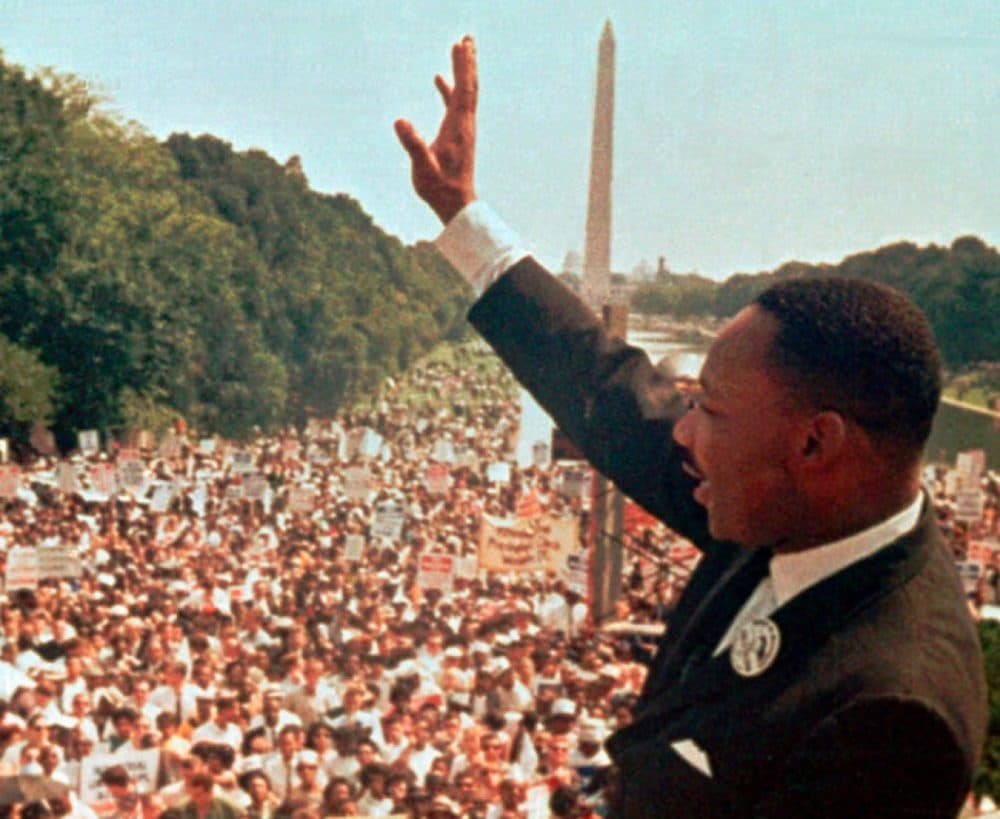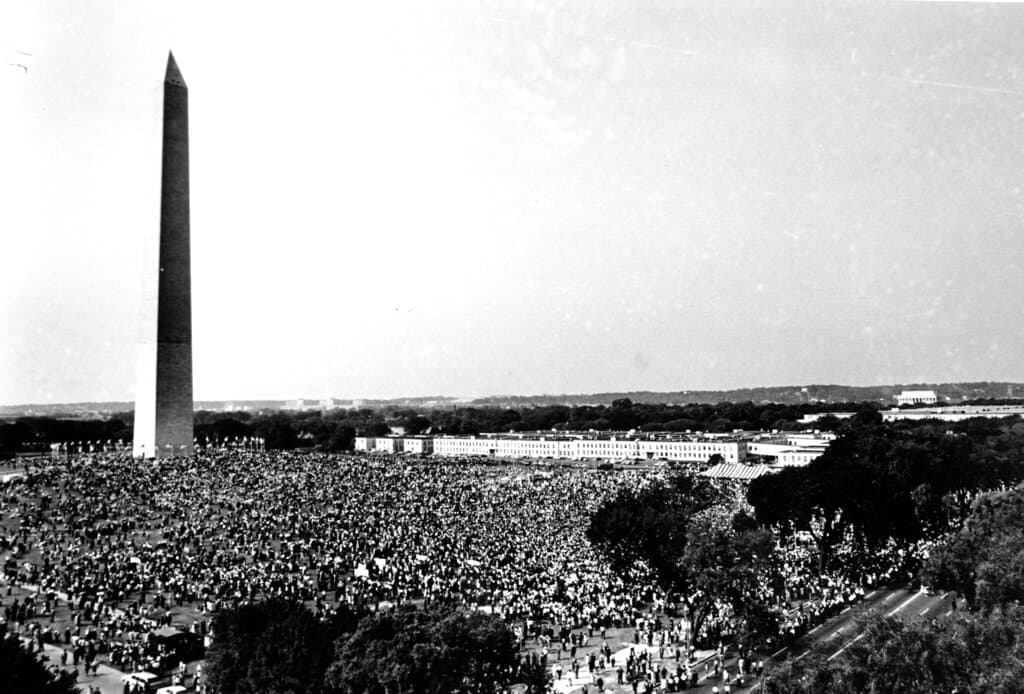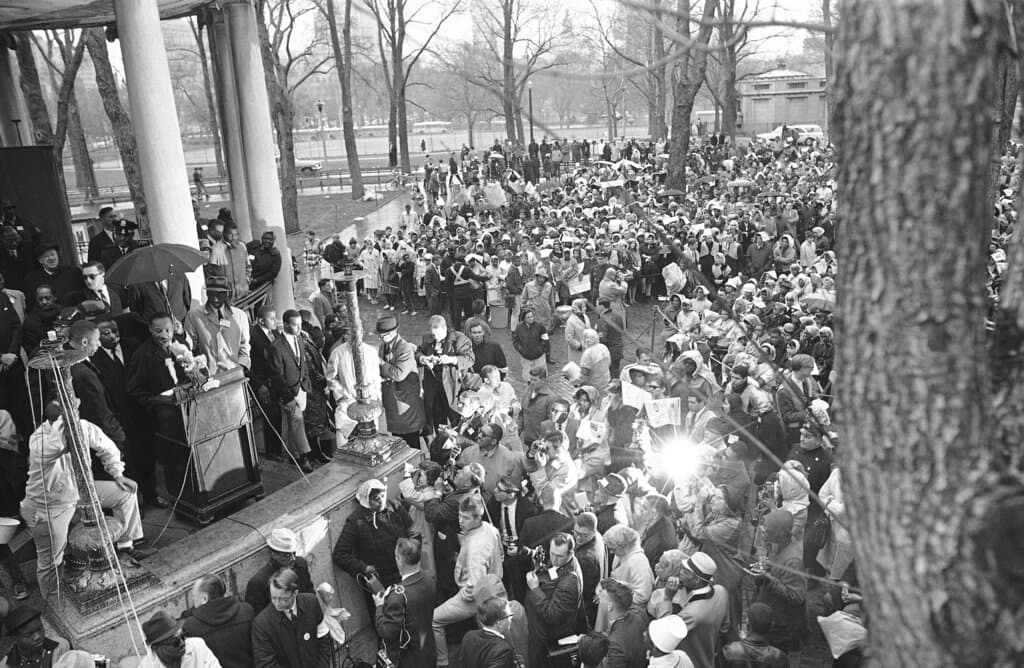Advertisement
Commentary
Nearly 60 Years Later, We’re Still Chasing Dr. King’s Dream

Americans know about the march on Washington, D.C. 58 years ago this week largely because of Martin Luther King Jr. and his iconic message, “I Have a Dream.” But many have forgotten that the 250,000 people who marched to the Lincoln Memorial had gathered to demand both racial justice and the full inclusion of all people into the economic promise of America.
Nearly six decades later, we have made some progress but America and Boston still have far to go to achieve the equity and economic justice bestowed as an American birthright.
The “March on Washington for Jobs and Freedom,” which took place on August 28, 1963, was organized and built by an alliance of civil rights, labor and religious organizations, including leaders of the six prominent civil rights groups at the time, among them Philip Randolph and Bayard Rustin of the Brotherhood Roy Wilkins, NAACP; and John Lewis of the Student Nonviolent Coordinating Committee (SNCC). The march, one of the largest at the time, harnessed the collective power focused on the advancement of civil rights and economic justice.
Dr. King reminded the masses that day of the continuing challenges and inequalities faced by Black people a century after the Civil War and emancipation. “ … America has defaulted on this promissory note in so far as her citizens of color are concerned. Instead of honoring this sacred obligation, America has given the Negro people a bad check, a check which has come back marked 'insufficient funds,'" he said.

Despite Boston’s best attempts over the years, we still have trouble supporting and encouraging the growth of our Black entrepreneurs, losing out on our most promising opportunities to cities like New York. The region's efforts to keep Black businesses have been undermined by the subtle ways in which racism diminishes progress and opportunity. We need new, inspired efforts. The Seaport, Boston’s opportunity to create a community diverse with economic and housing options, remains a space where Black Bostonians do not feel welcome.
This exclusion from economic opportunities has been compounded by our failure to follow through on our pledges for social justice. In the wake of the George Floyd murder last year, American companies promised $50 billion toward racial equity and civil rights organizations, but according to Fortune, $250 million, or just 5%, has been invested or donated toward that pledge. What matters is action, not promises. And so far, the action has not reached its full potential.
Advertisement
It is in that context that a new generation of Black leaders is stepping up. In his historic 1965 speech on Boston Common, Dr. King said that “the vision of the New Boston must extend into the heart of Roxbury. Boston must be a testing ground for the ideal of freedom.” It's a call to action that requires us to imagine new ways that economic and racial justice can be met in the Commonwealth. A new group of leaders -- such as BECMA’s Segun Idowu, Mass Budget’s Marie-Francis Rivera, Boston Ujima Project’s Nia Evans, Boston Women’s Fund’s Natanja Craig Oquendo, Violence in Boston’s Monica Cannon-Grant, and Sheena Collier of Boston While Black are shaping the way we approach economic justice and anti-racism work.

We are within a decade of Boston’s 400th birthday. As we approach this quadricentennial celebration, we can take a number of overdue actions for economic justice. We can adopt King Boston’s anti-racist, economic and cultural justice agenda; we can support Senate Bill 665/House Bill 1223, which would establish a Massachusetts public bank to work with traditional banks in making credit more available to Black, BIPOC and other small businesses. And we can do much more.
Last year, King Boston and the Black Economic Council of Massachusetts were among a group of organizations that came together to form the Black Mass Coalition. Together, we established a set of 20 targets across four sectors — commitments to be made if we are truly serious about justice. They include:
*Nonprofit institutions commit to 100% participation in PILOT programs across the Commonwealth and award no less than 10% of yearly and multi-year contract dollars to Black and Indigenous-owned businesses.
*Corporations, large enterprises, venture capital firms, insurance companies and banks commit to contributing to a reconstruction and rehabilitation fund that will total no less than $1 billion before Dec. 31, 2030.
*Philanthropic organizations commit to reapportioning no less than 1% of their assets to purchase land across the Commonwealth for Black and Indigenous farmers, residents and business owners to develop, grow, produce and manufacture goods, food and services.
*The Commonwealth commits 10% of its annual contracts to Black and Indigenous businesses.
For decades, racism has justified and reinforced zero-sum thinking in American culture which has kept this country and Boston from reaching their full potential. We don’t have to return to that mindset post-pandemic. We can act to fulfill the promissory note of the American Dream and perhaps we can all be free from the dark history of racism, Jim Crow, red-lining, segregation, separate-but-unequal and white supremacy. As Dr. King said that day in August 1963: “We are not satisfied, and we will not be satisfied until justice rolls down like waters, and righteousness like a mighty stream.”
Dr. King wasn’t the only one with a dream. Isn’t it time for the promise of America, full inclusion, economic equality and social justice to finally be realized? If not now, when?
